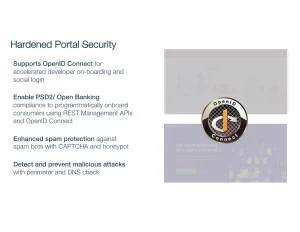How to Get a Prime Auto Finance Loan Even If You Have a Credit Blemish

Getting a car loan can be a great way to start building your credit. However, there are some hidden risks associated with subprime auto loans. Luckily, there are some ways to get a loan even if you have a credit blemish.
Subprime auto loans have hidden risks
Default on subprime auto loans has a long term impact on a borrower’s financial health. For example, borrowers are more likely to file for bankruptcy. They are also more likely to be repossessed. The lender may also charge higher fees for the loan.
In addition, subprime auto loan lenders often charge higher interest rates and fees. This has created a new set of risks for subprime borrowers. Often, these risks are hidden.
Auto lenders have been known to engage in abusive practices. For example, they may require additional information from a consumer, such as tax returns or employment verification. This may be done in order to close more deals, but it can also lead to questionable underwriting practices and loan structures.
In a bid to gain volume, loan originators may encourage fraudulent auto loan applications. These hidden risks have led to the development of new auto loan structures and underwriting practices that are potentially unsuitable for subprime borrowers.
Getting a loan with a low credit score is a great way to start building credit
Getting a loan with a low credit score is not always the best way to begin building credit. This is especially true if you are just starting out. Many companies are wary of lending to a person with little or no credit history. This means that you may face a higher interest rate and a less-than-ideal set of terms.
The best way to start building credit is to get a secured credit card. With a secured card, you are required to put up a small deposit (around $200) before you can get a credit line. If you keep your account in good standing, you will get your deposit back when you close it.
You can also consider getting a bank agreement. These agreements are designed to provide short-term financial assistance to consumers with good histories with their banks. These agreements may be used to obtain overdrafts, loans and other forms of short-term financial assistance.
Another option is to get a cash advance. These are short-term loans that are offered by credit card companies. These loans typically have a higher APR than typical purchases.
Refinancing a loan vs lease buyout
Getting a loan to refinance a car lease can save you thousands of dollars. However, there are a few things you need to know before applying for one.
Leasing a car allows you to drive a new car for a set period of time. However, the cost can be prohibitive for some people. To avoid this, you may want to consider refinancing a car lease.
When considering whether to refinance a car lease or buy out a car lease, the first thing you need to do is compare the costs of both. You’ll want to compare the total cost of leasing a car, as well as the buyout amount.
The best refinancing option depends on your credit score and the terms of your lease. You’ll also want to compare the interest rate on the loan.
For example, if your credit score is good, you may be able to find a rate that’s below 2%. On the other hand, if your credit is bad, you may have to pay more than 3%.
Getting a loan with a blemish on your credit history
Getting a prime auto finance loan with a blemish on your credit history can be a challenge. The credit history of the buyer plays a large role in the financing equation. A borrower who has been late on payments, has poor credit, or has had a bankruptcy in the past can have a difficult time getting approved.
However, there are lenders who will work with borrowers with bad credit. The good news is that borrowers with a poor credit score are still generally approved for an auto loan. However, these loans may come with more stringent terms.
Some lenders use proprietary credit scoring models to determine borrowers’ loan eligibility. These models may allow them to make money off loans that have a higher interest rate than the credit score merits. In contrast, other lenders may not make money off loans with a high credit score.
Having a large down payment can lower your interest rate, even if your credit history is bad. It can also help you to appear less risky.









